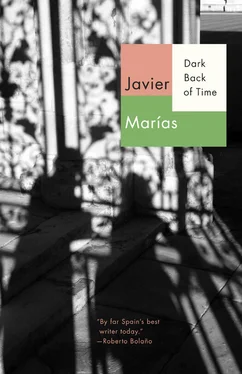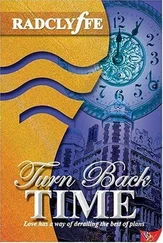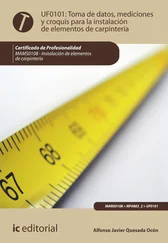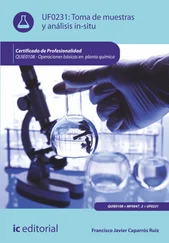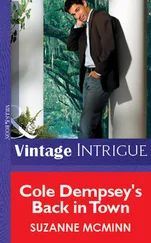Peninsular or Continental or both things together to English minds — of which fortunately only a few were ill-disposed in principle towards my oblique and nonsensical vision of the city and University of Oxford. Though I sent Ian Michael, Toby Rylands, the Taylorian Library and of course Eric Southworth their respective inscribed copies of the book right away, a few students who spent the 1989 Easter vacation in Spain (the novel had already been in the bookstores for a few weeks when Eduardo Mendoza — handsomely bribed — officially launched it on April 7) moved more rapidly than my country’s wretched mail service, which isn’t difficult, and, in Ian Michael’s words, showed up in Oxford “with wagonloads” of my books, which they distributed, loaned out, or resold at exorbitant prices with unexpected, inexplicable glee, as a result of which, for several days, my former colleagues noticed certain sarcastic gazes or heard certain enigmatic and, of necessity, oblique allusions from their students, without knowing what to make of them. None of this was, of course, my intention.
The first one to read the book — not in vain is he the most inquisitive, the one who most prides himself on keeping abreast of all that happens in several cities: Oxford, Swansea, Southampton, Madrid and Vigo — was Ian Michael, who wrote me a letter from Exeter College that made me sigh in relief when I began reading it but which I returned to its envelope in horror and mortification once I had finished. He very kindly wrote that All Souls struck him as my “best novel yet,” and assured me he was not saying this “because I have some small role in it, or because of the morbid fascination everyone here is feeling as a result of the mistaken belief that it is a roman à clef (students like John London and Huw Lewis come panting back from Madrid with so many copies that possibly they alone had contributed to its selling out).” (His Spanish is excellent but not perfect.) He said he had read it “in one sitting” until five in the morning, and now he was reading it again, more slowly; he spoke of the “interweaving of antithetical themes,” among them “the fictional Gawsworth: the real Machen” —taking Gawsworth for a fiction; he made a few more literary observations and, in fine professorial fashion, pointed out to me “only a very few solecisms, of scant importance: are the streets a kind of red?”—arguing with my eyesight—“or are they honey-colored?” He had another reservation, of an architectural or topographical nature, which amused me for its punctilious erudition: “It doesn’t seem possible to me that the office of Clare Bayes”—the novel’s central female character—“could look directly onto Radcliffe Camera from All Souls, where the only windows facing that direction are those of the Codrington Library (or those of Hertford, perhaps?), since Hawksmoor built a false wall to finish off All Souls on the west side, knowing that Wren or another architect would construct something interesting in the space to oppose or complement his neo-gothic towers. I’ve also noticed the complete absence of any reference to the Oxonian flora which I do not attribute to the (for me) wretchedness or poverty of almost all Spanish writers in this respect, but to your desire to represent an entirely inhospitable city.” Here he was mistaken or was being polite, since, in the matter of the aforementioned “wretchedness or poverty,” if in no other (my country’s inspectors have so often denied me any syntactic nationality: it’s a very literate country, the inspectors write a great deal and are applauded by the customs officials, and vice versa), I engrave my name fully and with laurels in the Spanish tradition: so extravagantly urban and distracted am I that I would be unable to identify so much as a pine tree. (Nor do I believe I depicted Oxford as so unpleasant.) He obligingly pointed out a couple of typos, and then gave me news of himself, the most salient — or most distressing — item being that he had been suffering from a case of eczema brought on by allergies ever since he had moved away from the house on the Cherwell and had been forced to place his blind mother in a private nursing home in the village of Freeland, “where Toby Rylands’ mother spent the last thirteen years of her life,” he said, as if he couldn’t help noting the growing number of parallels between the trajectory of his predecessor’s life and his own, or as if he were beginning to see Rylands’ present as a portend of his future. (And that’s what he called him in the letter, “Toby Rylands,” the name he went by in the novel, this time it wasn’t me who was doing it.) He wasn’t sure if the eczema was a psychosomatic effect of relinquishing his mother and the river, or if it was caused by the rug in his new flat, previously inhabited by a “woman who was a radiologist or cobalt therapist,” perhaps insinuating that the lady had wickedly irradiated it by flinging herself about on the carpeted floor during her tenancy.
The disturbing part came last. For, after having stated that my book was not a roman à clef , which cheered me enormously and filled me with gratitude (since, in fact, it was not, and no one was in a better position than he to see that), Ian Michael went on to speak to me of my former colleagues in the department, calling each one by the name of a character in the novel, thus forcing me into some arcane speculations as to the referent in each case. And in that vein, he informed me that Rylands was “very pleased with one of those false honors”—he was paraphrasing my text, which said “insincere honors”—“that he received news of in the mail: a prize that brought him four million pesetas and the obligation to give a lecture in Salamanca.” I was more worried about the next bit. “Your novel angered him, I’ve heard, and he flung it to the ground before he was halfway through.” And he went on, merrily tossing out fictional names: “I saw Alec Dewar furtively leafing through a copy brought to him by a muscular female student in a rugby shirt; later, in the commons of his college, he was bragging about having appeared in a Continental roman à clef .… Cromer-Blake”—the live one, not the dead one—“is just back from a lecture tour, perhaps a pleasure tour as well, in Italy … Leigh-Peele has yet to register a reaction.” Worst and most upsetting of all was the conclusion. If one character in All Souls was entirely made up (that is, could not be identified, even slyly or in bad faith, with anyone who was real) it was the central female, Clare Bayes, a married woman, also a professor, with whom the Spanish narrator maintained a clandestine relationship during his stay in what for him was always transient territory. Ian Michael, nevertheless, ended by saying, to my utmost bewilderment: “I see quite a bit of Clare Bayes these days since she’s moved as well, to a street near my new one, and I often run into her, she’s always carrying a lot of things around with her, as in the novel. She’s still fairly appealing, but not as attractive as before. No one knows whether she’s taken a new lover.”
I think I blushed (I know I did: I saw myself reflected on the television screen, I was watching a video and hadn’t stopped the tape to read the letter, I’m not sure if it was Los tres caballeros or Mi amor brasileño with Ricardo Montalbán, I remember that incongruous sambas were sounding in my ears as I deciphered the letter from my Oxonian former boss, the only boss I’ve had in my life, and who never acted like one, bless him), and of course I got a little worked up about it. Though I thought I would answer him in writing, too, as is proper, I immediately rang Ian up so that he could confirm Toby’s unexpected and to me deplorable fury, and I could rescue him at once from his error with regard to the dangerous conjecture of a real Clare Bayes. But when I had him at the other end of the line — it was evening — I thought it best not to inquire after the identity of the woman who, according to him, had lost some of her former appeal. “Good God,” I thought, as I watched either the seductive Montalbán or that green parrot in a straw hat, José Carioca, I’m not sure which, dancing, now soundlessly, “as a result of my novel there is now a professor at Oxford whom everyone believes to be an adulteress, guilty of an extra-marital, Continental and, worst of all, Peninsular liaison, some poor woman who did no such thing, or at least not with me, to the point that she’s expected to ‘take’ a new lover after my now long past departure; she hasn’t done so because she’s not in the habit of doing so, and, as always happens in these cases, she’ll be the only one who doesn’t know, or perhaps her husband won’t either, her husband who’ll be taken for a cuckold — made one by the intervention of a foreigner predisposed to malignment — what a calamity. Who can she be? I wondered, but didn’t ask Ian, though I couldn’t help but mention to him in passing, in a feeble attempt to save the unknown woman from slander and idle talk, that there had never been a Clare Bayes or Clare Bayes-equivalent of any kind during my stay in Oxford. “No?” was all he answered, and it was clear he didn’t believe me. I deeply regretted the fact that this woman, whoever she was, would be the object of gossip in so gossip-mongering a city, and I the indirect cause of it, and thus not only would her reputation be placed in question but her good taste as well. (I have no reputation to lose in this respect, but who knew if my taste wouldn’t be questioned, also.) If I may, I will state here that during my years in Oxford I lived very chastely, at least with respect to the native women, who in no way struck me as “rather whorish,” as Miriam Gómez once said they could be (she said it in her always inoffensive Cuban way and in the presence of her husband, Guillermo Cabrera Infante, who said nothing, both of them having lived in London for thirty years). To my horror I suddenly realized that the high-mindedness and good sense of the lady professor would also be cast in doubt, for, according to British convention and tradition, being seduced by a Spaniard is third among the most sordid and, at the same time, naive entanglements that a married Englishwoman can become involved in: the second is seduction by an Italian, and the first by an Argentine. The worst of it is that there are a large number of people in Oxford with conventional and traditional British ideas. What a terrible disservice to this poor, unlucky woman to whom I wish no harm, I thought; really, we writers should be more careful about what we write, not only because of situations like this one but also because what we write sometimes comes to pass. And if I must be sincere — there’s no reason why I have to be, perhaps I’ll need to talk about that later — I also regretted not having known her, because if she was no longer quite as attractive that meant she had been attractive when I was a temporary part of the city and the congregation. Or perhaps I had known her. In any case, the two of us apparently made a plausible furtive couple, which gave rise to a certain vulgar curiosity that I was able to quell. I tried to see myself reflected on the television screen again, which is somewhat difficult when the screen is full of bright colors: entirely impossible to see oneself blush against a backdrop of Carioca and Montalbán, Donald Duck and Lana Turner, and I could only tell I was blushing from the heat of my face and the momentary palpitation of an eyelid.
Читать дальше
